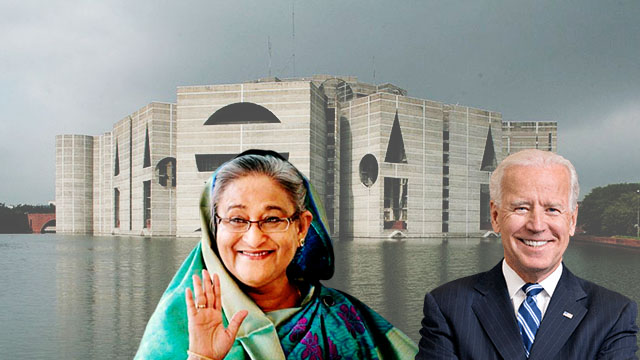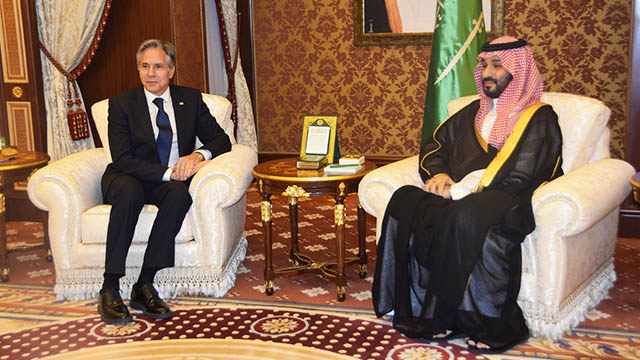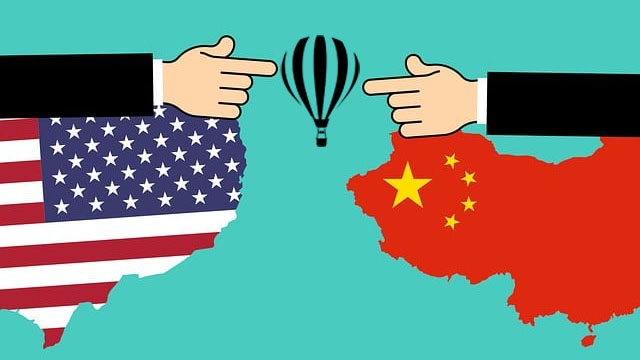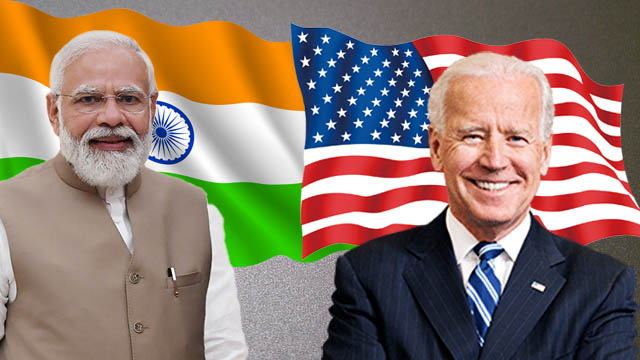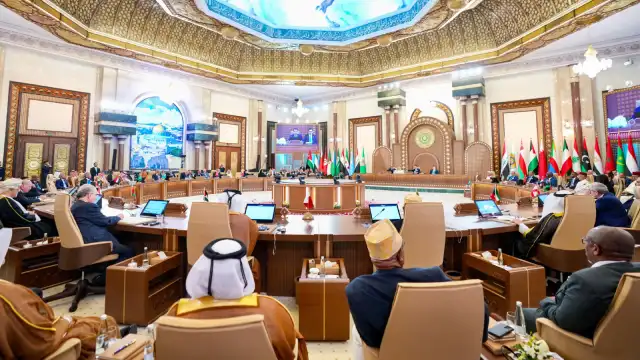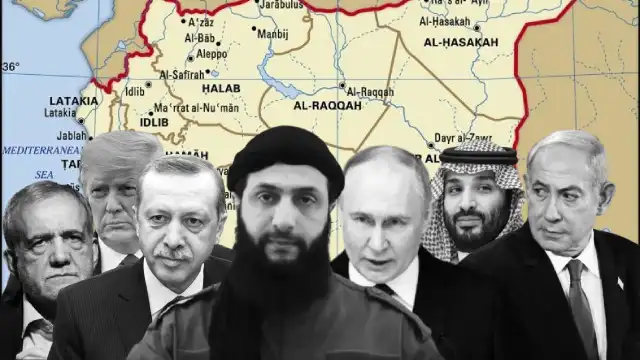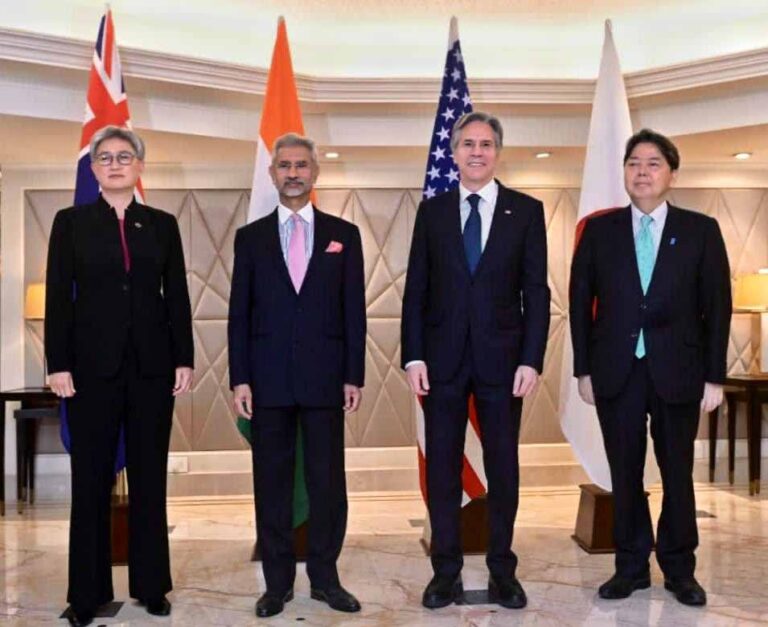The US administration has been lately showing too much concern regarding free, fair and peaceful elections in Bangladesh. Recently, US Secretary of State Anthony Blinken declared that Washington DC will not give visas to those Bangladeshi citizens who will be accused of disrupting the election process in that country. Blinken’s message has sparked a political uproar over US interference in Bangladesh elections.
On Wednesday, May 24th, US State Department spokesperson Matthew Miller officially announced the new visa policy for Bangladesh, planned by Blinken. Various explanations are being given from different quarters of Bangladesh about the purpose of this announcement. However, it’s also alleged that the new visa rules epitomise US interference in Bangladesh elections.
On Thursday, May 25th, US Ambassador to Bangladesh Peter Haas called a meeting of representatives of the country’s ruling Awami League and major opposition parties like the Bangladesh Nationalist Party (BNP) and Jatiya Party (JP) to inform them that Washington DC demands free, fair and peaceful elections in Bangladesh. BNP and JP leaders were visibly elated after meeting with Haas, which lasted over two hours.
The western-leaning BNP has supported the US interference in Bangladesh elections. “We welcome this decision of the US as it has taken into account the concerns of the people of Bangladesh about the [upcoming general] elections,” Amir Khasru, chairman of the BNP’s foreign affairs committee, informed the press. “I think this move will at least play a role in holding the next elections fairly and credibly”, he added.
BNP leader Khasru also said that only Awami League has a reason to panic over the US’s new visa rules and not the Opposition. He claimed that BNP does not rig elections like Awami League. Apart from this, Khasru also said that because of Awami League’s blatant electoral malpractices and use of terror, the US State Department has adopted the new visa policy for Bangladesh, which it didn’t adopt in the case of neighbouring countries.
On the other hand, the Awami League government did not directly oppose this declaration, in an apparent bid to avoid offending the US. It also didn’t question the US’s audacity to comment on Bangladesh elections. Officially, the Awami League-led government didn’t acknowledge any US interference in Bangladesh elections.
“The Government of Bangladesh has taken note of the announcement made by the US Secretary of State on a visa restriction policy pursuant to the so-called 3C provision under the US Immigration and Act. Bangladesh would like to view this announcement in the broader context of its government’s unequivocal commitment to holding free and fair elections at all levels for upholding the country’s democratic process. However, Bangladesh expects that such visa policy will not be applied arbitrarily in a non-objective manner (sic)”, said the Ministry of Foreign Affairs in a moderate statement on US interference in Bangladesh elections.
The BNP and other Opposition parties had alleged that the Awami League, led by Prime Minister Sheikh Hasina, rigged the 2018 general elections using state terror to retain power. Many also alleged that Hasina won with the indirect help of neighbouring India. The US, particularly under the right-wing, pro-interventionist Democrat regime under Joe Biden, has been critical of Dhaka despite the Hasina regime’s alleged tryst with the West and its pro-western policies.
Although Dhaka has remained silent to the US government’s subtle hostility towards it, to maintain its warm bilateral ties with the US, Hasina has gradually become more vocal against the West over the past few months after sensing an imminent threat to her rule from Washington DC. She has been doubting that the US is backing the Opposition, especially the far-right BNP, considering it as safe bait.
While Hasina is a supporter of the US-led anti-China “Indo-Pacific”, alliance, allegedly due to pressure exerted by India’s Narendra Modi-led government, the US is further pressuring her to join the QUAD military alliance against China. Meanwhile, it is not possible for Bangladesh, which has been improving its economic relations with China, to openly join any anti-China war alliance with the US. This has caused fissures in US-Bangladesh relationships, brokered by New Delhi.
The US has been repeatedly exerting external pressure on Hasina using criticisms and sanctions. She has faced severe criticism from the West over her government’s human rights abuses and political tyranny. Most recently, the West imposed sanctions on Bangladesh’s paramilitary Rapid Action Battalion for allegedly killing innocent people under the garb of “crossfires” (armed confrontation).
It became clear to all that these sanctions are rooted in the bigoted attitude of the US towards the South Asian, Muslim-majority country, due to its growing bonhomie with China. Hence, sensing the threat of US interference in Bangladesh elections, the prime minister started attacking her detractors in Washington DC without mincing the words.
Recently, on April 10th, Hasina alleged that the US could overthrow the government of any country and said, that the US wants to export such a democratic model to Bangladesh, which will have no democratic essence and will function in an undemocratic style. She accused the Opposition of exhibiting greed and working as vassals of the US in Bangladesh.
At the beginning of the uproar over US interference in Bangladesh elections, Hasina highlighted the facts that Washington DC had supported military dictatorship in Bangladesh in the past and even wanted to send the Seventh Fleet of the US Navy to stop the liberation war.
She also highlighted the fact that Washington DC has sheltered those who perpetrated genocide on behalf of the Pakistani regime during the liberation war and gave political asylum to the murderers of Sheikh Mujibur Rahman, popularly known as ‘Bangabandhu’. Raising all these issues and hinting at the possibility of US interference in Bangladesh elections, Hasina questioned the hypocrisy of Washington DC.
“Those who killed (Mujib) on August 15th, the murderer Rashed (Rashed Chowdhury) has taken refuge in America. I appealed to all the presidents who came there (in the US). Legally we have made efforts. We have tried diplomatically. I have appealed to the President that you should not give shelter to convicted murderers, child killers, women killers, president killers and minister killers. It violates humanity”, Hasina alleged. “They are keeping the murderers alive”, said Hasina said pointing fingers at the US.
Hasina said, “…They can reverse, and change the power of any country. Especially Muslim countries are going through more and more difficult conditions. The Arab Spring (Arab Spring), the events that democracy claims to happen – now find itself in a trap. As long as Islamic countries were suffering, nothing happened. After the Russia-Ukraine war, the entire world is now in the grip of economic recession. That is the reality.”
To counter the US’s pressure on her government, Hasina has since begun to draw closer to the anti-US China-Russia alliance, although her government says Bangladesh wants to maintain good relations with Washington DC. However, through subtle diplomatic manoeuvres, Dhaka has been showing that it’s not liking the US interference in Bangladesh elections.
In the meantime, to irk Washington DC further, Dhaka has started warming up its relations with Iran, which is viewed as a thorn by the US. Bangladesh voted in favour of Iran in the UN Human Rights Council, ignoring the US’s whip. Later, on April 17th, Hasina had a telephone conversation with Iranian President Ibrahim Raisi.
Bangladesh has also maintained a neutral stance on Russia’s special military operations in Ukraine. Dhaka didn’t condemn Russia and didn’t support any sanctions on Moscow. This way, alike India, it has adopted a foreign policy that doesn’t toe the western line. Meanwhile, in an apparent sign of growing Bangladesh-China bilateral relations, China’s special envoy Deng Xijun, Beijing’s ambassador to the ASEAN, visited Dhaka. Bangladesh Foreign Secretary Masud Momen also visited China.
However, to balance her foreign policy, Hasina visited US-ally Japan and went to the Middle East, where now China and Russia are trying to get the Arab countries out of the US grip by expanding their influence. The Communist Party of Bangladesh (CPB) made a statement that Bangladesh’s sovereignty should not be sold during the prime minister’s Japan visit, as an anti-China US-UK-Japan alliance was also taking shape at that time.
“During Prime Minister Sheikh Hasina’s Japan tour, there is news of a US-UK-Japan trilateral agreement, which is quite alarming. In particular, as part of the US imperialism’s Asia-based military ambitions, the Indo-Pacific strategic project to connect the deep-sea port that Japan had built at Matarbari in Chittagong with the north-eastern states of India bordering Chittagong, and as an adjunct to the US’s long-desired establishment of a US naval base in Bangladesh, etc. It has been reported in various media that it will be discussed during the Japan visit. If this is done, it will pose a great threat to the national security and sovereignty of Bangladesh. Such an agreement or compromise will be contrary to the spirit of the liberation war”, the CPB said in a statement.
Already in South Asia, the US’s influence is not lasting in any country except India. Former Pakistani prime minister Imran Khan has indirectly accused the US of being complicit in his ouster and arrest. The US has no scope under the China-aligned government of the Maoists in Nepal. Bhutan, which borders China, is not important to the US despite being under Indian influence. The US sees no future in Sri Lanka’s turbulent situation, and the military-ruled Myanmar government is vehemently opposed to any sort of US intervention.
In this situation, there are many reasons for increasing US interference in the Bangladesh elections. Because if the US helps parties like BNP or JP, then if those parties form a government, the West will benefit in both commercial and military ways in Bangladesh. Now it remains to be seen whether the US interference in Bangladesh elections will work or will the opposition shoot itself in the foot due to its closeness to the West.
Tanmoy Ibrahim is a journalist who writes extensively on geopolitics and political economy. During his two-decade-long career, he has written extensively on the economic aspects behind the rise of the ultra-right forces and communalism in India. A life-long student of the dynamic praxis of geopolitics, he emphasises the need for a multipolar world with multilateral ties for a peaceful future for all.

